Search
Remove Ads
Advertisement
Summary 
Loading AI-generated summary based on World History Encyclopedia articles ...
Search Results
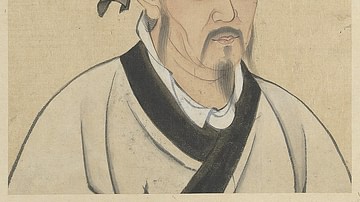
Definition
Mencius
Mencius (l. 372-289 BCE, also known as Mang-Tze or Mang-Tzu) was a Confucian philosopher during The Warring States Period in China (c. 481-221 BCE) and is considered the greatest after Confucius himself for his interpretation, formulation...
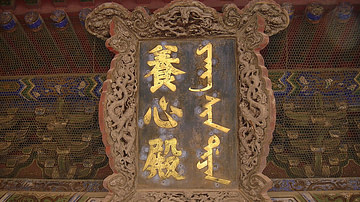
Image
Mencius
From the Yang Xin Dian (Hall of Mental Cultivation) in the Forbidden City in Beijing, constructed in 1537 CE. Eight emperors of the Qing Dynasty lived here. The words "Yang Xin" come from the Mencius (a collection of the thoughts of the philosopher...
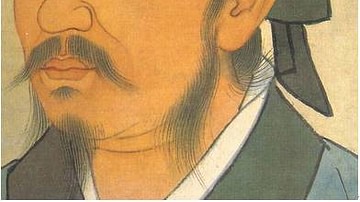
Definition
Xunzi
Xunzi (pronounced shund-zee, l. c. 310-c. 235 BCE) was a Confucian philosopher of the Warring States Period (c. 481-221 BCE) in China. He is also known as Hun Kuang, Hsun Tzu, Xun Tzu, and Xun Kuang. Xunzi translates as Master Xun and is...
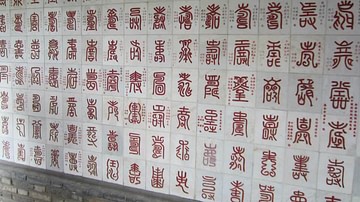
Definition
Yang Zhu
Yang Zhu (l. 440-360 BCE, also known as Yang Chou or Yang Chu) was a hedonist philosopher who lived and wrote during The Warring States Period in China. Little is known of his life but his work survived through the writings of the great Confucian...

Image
Portrait of Mencius
Mencius in the album Half Portraits of the Great Sage and Virtuous Men of Old. The full album consists of sixty leaves. It includes 120 notable Confucians, spanning from the Spring and Autumn period (c. 772-476 BCE) up to the Yuan Dynasty...
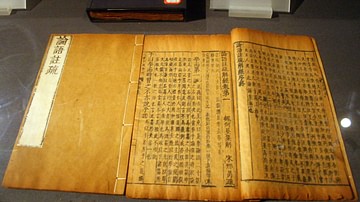
Definition
Confucianism
Confucianism is a philosophy developed in 6th-century BCE China, which is considered by some a secular-humanist belief system, by some a religion, and by others a social code. The broad range of subjects touched on by Confucianism lends itself...
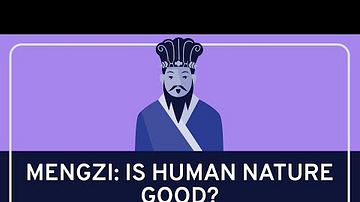
Video
Ancient Chinese Philosophy - Mencius on Human Nature
What is human nature? Is human nature good or bad? Can human nature be good even if the world contains some notably bad people? Matthew Walker (Yale-NUS College) looks at the views of the early Confucian thinker Mengzi (Mencius).
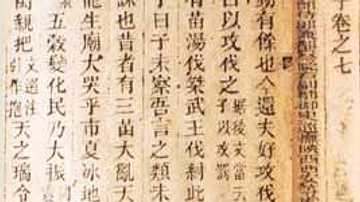
Definition
Mo Ti
Mo Ti (l. 470-391 BCE, also known as Mot Tzu, Mozi, and Micius) was a Chinese philosopher of the Warring States Period (c. 481-221 BCE) associated with the Hundred Schools of Thought (different philosophical schools which established themselves...
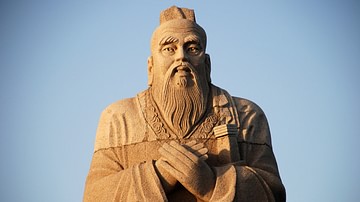
Definition
Confucius
Confucius (Kongzi) was a 6th century BCE Chinese philosopher. His thoughts, expressed in the philosophy of Confucianism, have influenced Chinese culture right up to the present day. Confucius is a larger than life figure and it is difficult...
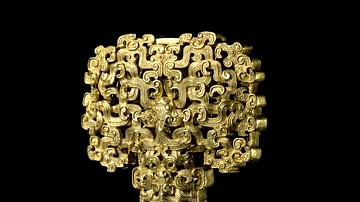
Definition
Zhou Dynasty
The Zhou Dynasty (1046-256 BCE) was among the most culturally significant of the early Chinese dynasties and the longest lasting of any in China's history, divided into two periods: Western Zhou (1046-771 BCE) and Eastern Zhou (771-256 BCE...